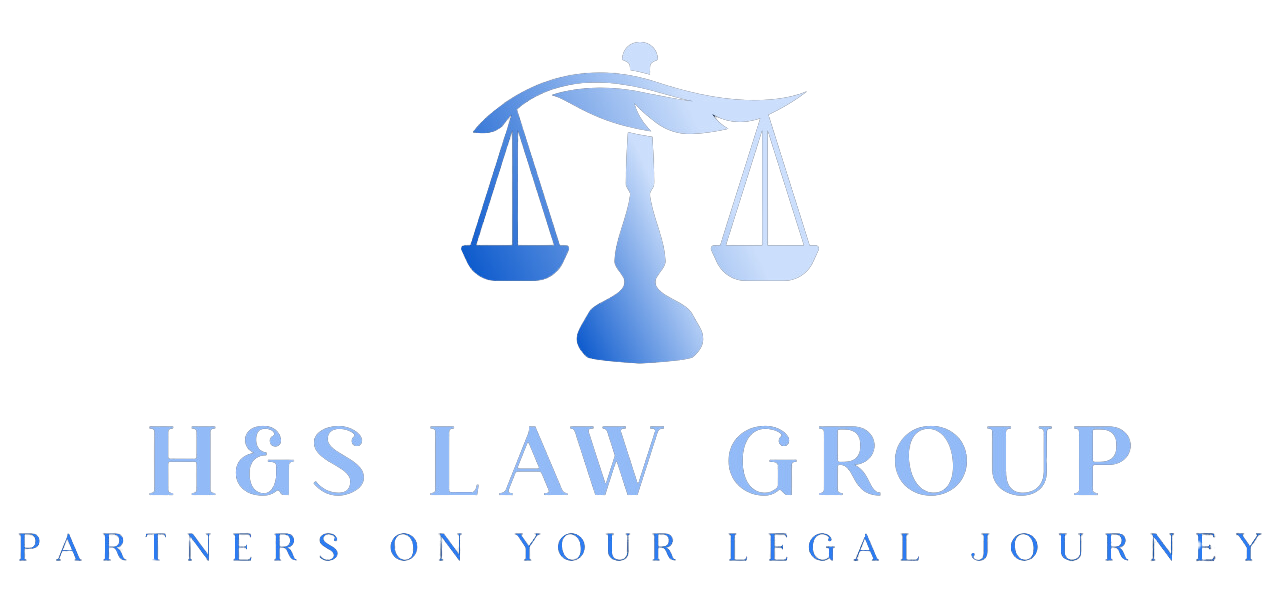
What Happens If You Get a DWI in NJ?
A charge of driving while intoxicated (DWI) in New Jersey is a serious offense that sets in motion a series of events that can affect your life. It’s more than a traffic ticket; it has significant consequences. Whether it’s your first time being charged or you’re facing a repeat offense, understanding what to expect after a DWI arrest is essential to protect your rights and prepare for what lies ahead.
At H&S Law Group, we’ve represented clients charged with DWI across New Jersey, and we are here to help you through the legal process, potential penalties, and defense options if you are charged with a DWI. Let’s break down the complexities of a DWI in NJ, from the initial stop to the long-term repercussions.
The Immediate Aftermath of a DWI Arrest
A DWI stop often begins with a law enforcement officer observing unusual driving behavior. This could be anything from swerving to speeding. Once pulled over, the officer will look for signs of intoxication.
These signs might include the smell of alcohol, slurred speech, or fumbling for documents. If the officer has reason to believe you are under the influence, you will be asked to perform Standardized Field Sobriety Tests. Following these tests, you will likely be taken into custody and asked to submit to a chemical test to determine your Blood Alcohol Concentration (BAC).
Understanding Blood Alcohol Concentration
Your BAC level is a critical piece of evidence in a DWI case. New Jersey has specific penalties tied to different BAC levels, especially for first-time offenders. The legal limit for drivers 21 and over is a BAC of 0.08%.
- 0.08% to less than 0.10% BAC: This is the first tier of offenses.
- 0.10% to less than 0.15% BAC: Penalties become more severe at this level.
- 0.15% and higher BAC: This tier carries the harshest penalties for a first offense.
New Jersey has a zero-tolerance policy. Any detectable amount of alcohol (0.01% BAC or higher) will lead to a DWI charge.
Penalties for a First-Time DWI Offense
These penalties are not just financial; they also involve the loss of driving privileges and mandatory educational programs. The goal is to educate offenders about the dangers of impaired driving and to prevent repeat offenses.
First Offense: 0.08% to less than 0.10% BAC
Even at the lowest tier, the consequences are substantial. A conviction at this level will result in a number of court-mandated actions that you must complete.
- Fines between $250 and $400.
- Up to 30 days in jail.
- Installation of an ignition interlock device for three months.
- Participation in the Intoxicated Driver Resource Center (IDRC) for 12 to 48 hours.
- Various fees and surcharges.
First Offense: 0.10% to less than 0.15% BAC
If your BAC is in this higher range, the penalties increase. The state takes a firmer stance as the level of impairment rises.
- Fines between $300 and $500.
- Up to 30 days in jail.
- Installation of an ignition interlock device for seven months to one year.
- Attendance at the IDRC.
First Offense: 0.15% or Higher BAC
A BAC of 0.15% or more brings the most severe penalties for a first-time offender. This high BAC indicates a significant level of intoxication, and the state’s response reflects that.
- Fines between $300 and $500.
- A license suspension of four to six months.
- Installation of an ignition interlock device during suspension and for nine to 15 months after restoration.
- Up to 30 days in jail.
- Participation in the IDRC program.
If you are arrested for a DWI, don’t wait to contact a DWI attorney at H&S Law Group. Our attorneys are here to help you navigate your DWI charge and to advocate for you. Contact us at (973) 200-1433.
Consequences of Subsequent DWI Offenses
New Jersey law imposes increasingly harsh penalties for second and third DWI convictions within a ten-year period. The state aims to strongly discourage repeat offenses through a system of escalating consequences.
A second offense brings mandatory jail time and a lengthy license suspension. A third offense results in a significant period of incarceration and the loss of driving privileges for an extended time.
Second DWI Offense in Ten Years
A second conviction carries much weightier penalties. The focus shifts from education to more punitive measures.
- Fines ranging from $500 to $1,000.
- Mandatory jail time of 48 hours to 90 days.
- A one to two-year license suspension.
- Installation of an ignition interlock device for two to four years after license restoration.
- 30 days of community service.
- 48 hours at the IDRC.
Third DWI Offense in Ten Years
A third DWI conviction within a decade has life-altering consequences. The penalties are severe and are meant to remove repeat offenders from the road.
- A fine of $1,000.
- A mandatory 180-day jail sentence.
- An eight-year license suspension.
- Installation of an ignition interlock device for two to four years following license restoration.
- Up to 90 days of community service.
- Participation in the IDRC program.
Our attorneys at H&S Law Group can help you understand the consequences of a second and third DWI. Let us review your case with you.
The Role of the Intoxicated Driver Resource Center
The Intoxicated Driver Resource Center is a mandatory component of any DWI sentence in New Jersey. The IDRC is a program that provides alcohol and drug education. For some, it may lead to a referral for further substance abuse evaluation and treatment.
The program’s length depends on the offense. For a first offense, it is typically a 12-hour program. For second and subsequent offenses, it can be a 48-hour program. Failure to complete the IDRC requirements will result in further legal trouble, including additional license suspension and potential jail time.
Beyond Fines and Jail Time: Other Consequences
The impact of a DWI conviction extends far beyond the courtroom. It can seep into various aspects of your personal and professional life. These long-term consequences can be just as challenging as the immediate legal penalties.
Your car insurance rates will almost certainly increase significantly because a DWI on your driving record makes you a high-risk driver in the eyes of insurance companies. This can lead to hundreds or even thousands of dollars in additional premiums each year.
A criminal defense attorney can help you navigate these consequences. Don’t wait to reach out to H&S Law Group today to speak with Joseph P. Slawinski, Esq. and Eric S. Hausman, Esq.
Impact on Employment and Professional Licenses
A DWI can have serious implications for your career. If your job requires you to drive, a license suspension could mean the loss of your employment. Even if driving is not part of your job description, a DWI conviction can show up on a background check, potentially affecting future job prospects.
For those with professional licenses, such as doctors, lawyers, or pilots, a DWI conviction may need to be reported to their licensing board. This could trigger a review and potential disciplinary action, including suspension or revocation of the professional license.

What Happens If You Get a DWI in NJ?
A DWI in New Jersey is a serious matter with a wide range of consequences. From the moment of your arrest, a legal process begins that can result in hefty fines, license suspension, and even jail time. The penalties become progressively more severe with each subsequent offense.
Beyond the legal system, a DWI conviction can lead to higher insurance rates and create challenges in your professional life. Understanding the full scope of what happens if you get a DWI in NJ is the first step in addressing the charge and its potential impact on your future.
If you or a loved one is facing a DWI charge, contact H&S Law Group for a free consultation. Let us help you navigate the legal system with skill, discretion, and relentless advocacy. Visit us at 1719 NJ-10 Suite 224, Parsippany-Troy Hills, NJ 07054.
